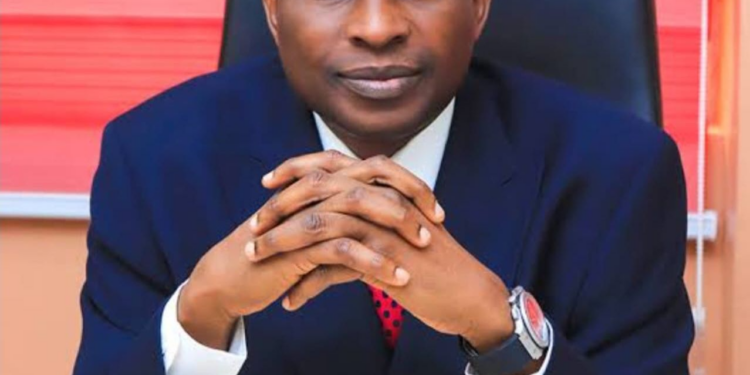President Bola Ahmed Tinubu has approved the appointment of Mr. Ola Olukoyede as the executive chairman of the Economic and Financial Crimes Commission (EFCC).
The president also approved the appointment of Muhammad Hammajoda as secretary of the EFCC on a renewable term of five years.
Olukoyede takes over from Mr. Abdulkarim Chukkol who has served as the acting chairman of the EFCC since the removal of Abdulrasheed Bawa.
Before his appointment, Olukayode has previously served as chief of staff to the former acting executive chairman, Mr. Ibrahim Magu, and was later appointed secretary to the commission.
A seasoned lawyer with over 22 years’ experience, Olukayode is a regulatory compliance consultant and specialist in fraud management and corporate intelligence with extensive experience in the operations of the EFCC.
Reacting to his appointment, senior special assistant to the president on Public Engagement, Fredrick Nwabufo, said the president followed due process before approving the appointment.
In a post on his official X handle, Nwabufo gave eight reasons Olukoyede deserved to be the EFCC boss.
According to him, President Tinubu approved the appointment in line with Section 2(3) of the EFCC (Establishment) Act, 2004.
Nwabufo said: “Mr Olukoyede was the chief of staff to the executive chairman of the EFCC (2016-2018) and secretary to the commission (2018-2020). He was a member of a law enforcement organisation as secretary, in this case the EFCC, as stipulated in the EFCC Act, and as such satisfied every legal detail to be appointed as chairman.
“Also, Section 2(1)(p) of the EFCC Act plainly, ordinarily, and unambiguously established the secretary to the commission (i.e., EFCC) as its member and head of its administration.
“The Supreme Court determined in the case of Ejuetami v. Olaiya & Anor (2001) LPELR-1072 (SC) at Pg.23-24, that: The words used are to be given their ‘ordinary and natural sense’. Therefore, the clear, explicit and unambiguous words used in sections 2(1)(a)(i)-(iii), (p), 2(2), 3(1)-(3) and 8(5) of the EFCC Act must be given their ordinary and natural sense in line with the guidelines set by the Supreme Court in its long line of undisturbed judicial precedents.
“The provision of Section 2(1) sub-paragraph (iii) of the EFCC Act did not state the nature of the experience which a person is required to possess for 15 years.
“This implies that such cognate experience is presumed to be that of the work or functions of the EFCC acquired anywhere since the EFCC Act did not state the specific place where it must be acquired. It is also unambiguous by the provisions of sub-paragraph (iii) that once a person possessed 15 years of such cognate (i.e., similar or alike) experience, then he has satisfied the provisions of sub-paragraph (iii) of section 2(1)(a) of the EFCC Act.
“It is clear from the unambiguous provisions of the EFCC Establishment Act, 2004, that any member of the commission whether serving or retired who has 15 years’ cognate experience in their chosen career is eligible to be appointed as the chairman of the commission.
He noted that prior to this time, the convention and precedence was that to be qualified for appointment as the executive chairman of the commission, the nominee must be a police officer or someone with law enforcement background, particularly in the area of investigation.
This, he said, has not only exposed the commission to all manner of vices but has brewed internal wrangling, discontent, and hatred among the members of staff of the commission.
“Mr Olukoyede satisfied every legal requirement to be appointed as EFCC chairman,” he stated.
The newly appointed secretary to the Commission, Muhammad Hammajoda, was until his appointment the director of Finance and Accounts.
He is also a public administrator with extensive experience in public finance management.
He holds a Bachelor of Science degree in Accounting from the University of Maiduguri and a Masters in Business Administration from the same university.
He began his career as a lecturer at the Federal Polytechnic, Mubi.
He further went into banking before becoming a public servant.
EFCC spokesperson, Dele Oyewale, said the two appointees parade impressive credentials for their new roles as anti-corruption czars.



